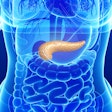
Combined genetic testing for patients with a suspected genetic cardiomyopathy or arrhythmia can diagnose patients who would have been missed if genetic testing had been restricted to a suspected disease subtype, according to research recently published in JAMA Cardiology.
Researchers at Northwestern University and colleagues reported that in their cohort study of 4,782 patients with a suspected genetic cardiomyopathy or arrhythmia, the combined testing approach captured nearly 11% of patients whose diagnosis would have been missed if genetic testing had been limited to a specific suspected disease.
Combined testing found clinically relevant variants in one in five patients. Moreover, 66% of patients with positive findings had potential clinical management implications.
Genetic testing can guide management of cardiomyopathies and arrhythmias, but cost, yield, and uncertain results can impede its use. Furthermore, it has not been clear whether combined disease testing or gene panels restricted to a specific disease subtype would improve diagnostic yield and clinical utility for patients with a suspected genetic cardiomyopathy or arrhythmia.
The authors noted that for cardiomyopathies, such disease subtypes include hypertrophic cardiomyopathy, dilated cardiomyopathy, arrhythmogenic right ventricular cardiomyopathy, and left ventricular noncompaction cardiomyopathy. For arrhythmias, disease subtypes include long QT syndrome, catecholaminergic polymorphic ventricular tachycardia, and Brugada syndrome.
The researchers evaluated the diagnostic yield and clinical management implications of combined cardiomyopathy and arrhythmia genetic testing through a no-charge, sponsored program for patients with a suspected genetic cardiomyopathy or arrhythmia at a single testing site from July 12, 2019, through July 9, 2020.
The study involved a retrospective review of DNA sequencing results for cardiomyopathy- and arrhythmia-associated genes.
A positive result was confirmed in 954 -- 19.9% -- of 4,782 patients. Of those, the positive results of 630 patients -- 66% -- could help direct clinical management associated with adverse clinical outcomes, increased arrhythmia risk, or targeted therapies, the authors wrote.
The combined gene panel testing identified clinically relevant variants for one in five patients suspected of having a genetic cardiomyopathy or arrhythmia. If only patients with a high suspicion of genetic cardiomyopathy or arrhythmia had been tested, at least 137 positive results -- 14.4% -- would have been missed, the authors added.
If testing had been restricted to panels associated with the clinician-provided diagnostic indications, 75 of 689 positive results -- 10.9% -- would have been missed. Twenty-seven of 75 findings -- 36% -- found through combined testing involved a cardiomyopathy indication with an arrhythmia genetic finding or vice versa, wrote the authors.
The combined approach revealed diagnoses that would have been missed by disease-specific testing and provided diagnostic and prognostic information that could alter management and monitoring strategies for patients and their families.
"In contrast to recent American Heart Association guidance recommending that testing be limited to patients with a high likelihood of disease, our results support a broader approach given that at least 14.4% of patients with a positive genetic result had been referred with a low or moderate suspicion of inherited cardiomyopathy or arrhythmia," the authors wrote.
Not only can broad testing identify more patients with genetic disease than disease-specific testing, but it can also detect more variants of uncertain significance.
That said, being diagnosed may outweigh the burden of uncertain results, the authors said, and noted the importance of having genetic counseling and clinician support services to manage expectations and increase the understanding of different variants.
In an associated editorial, also published recently in JAMA Cardiology, Julia Isbister of the University of Sydney and colleagues explained, "This study provides valuable insights into genetic testing approaches in the inherited cardiac diseases, and the beneficial impact a positive gene result can have on diagnosis, clinical management, and predictive testing in the family."
She added that the research also highlights the ongoing robust discussion in the cardiac genetics field regarding which and how many genes to test, whether testing should be disease-specific or more broadly based, and what the acceptable detection rate is for variants of uncertain significance which are "not clinically actionable."





